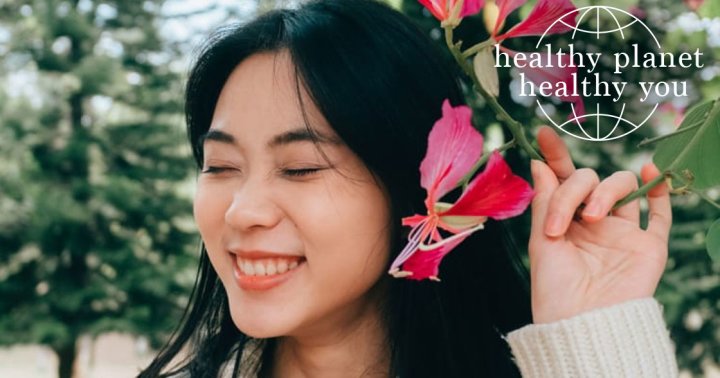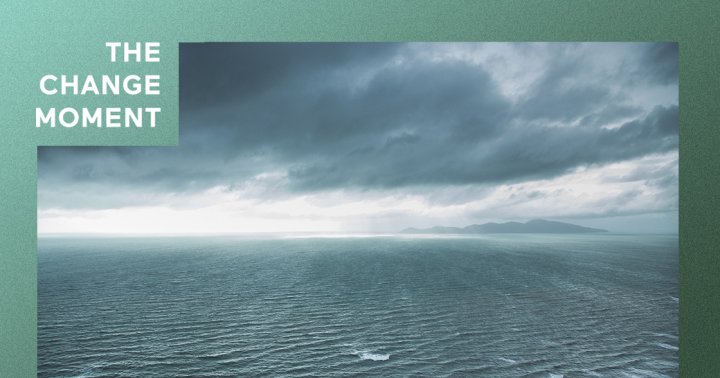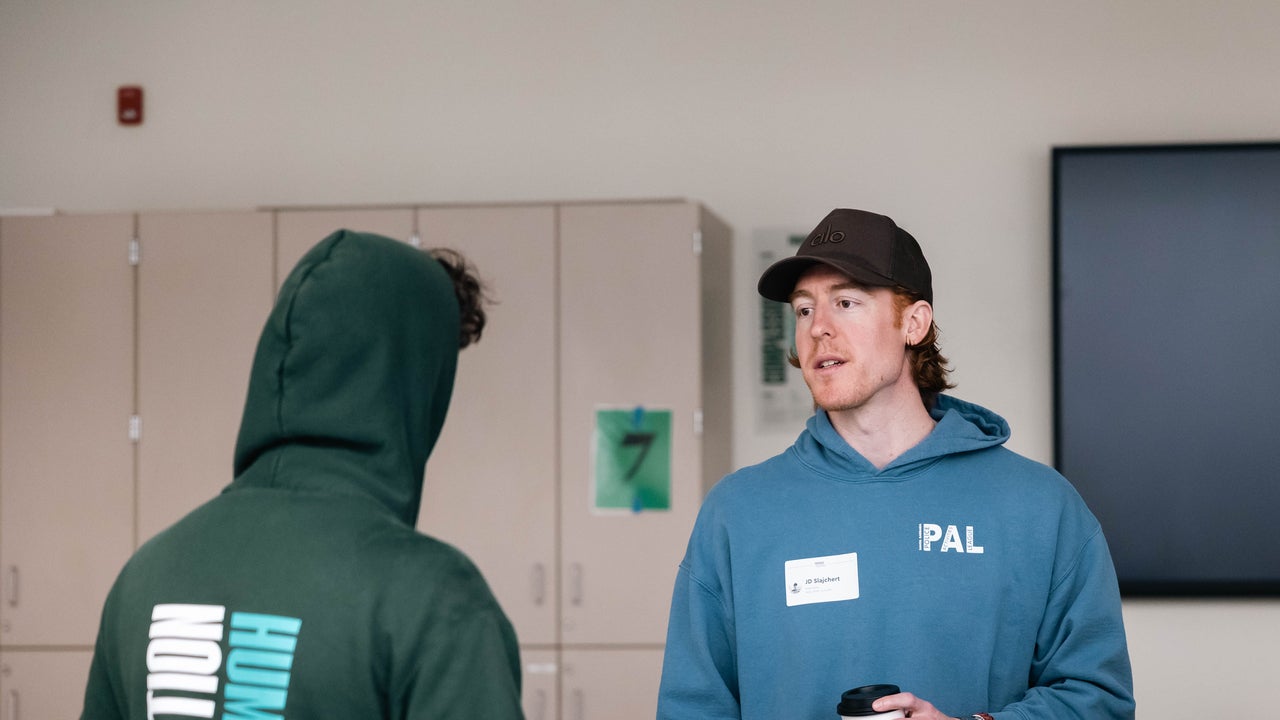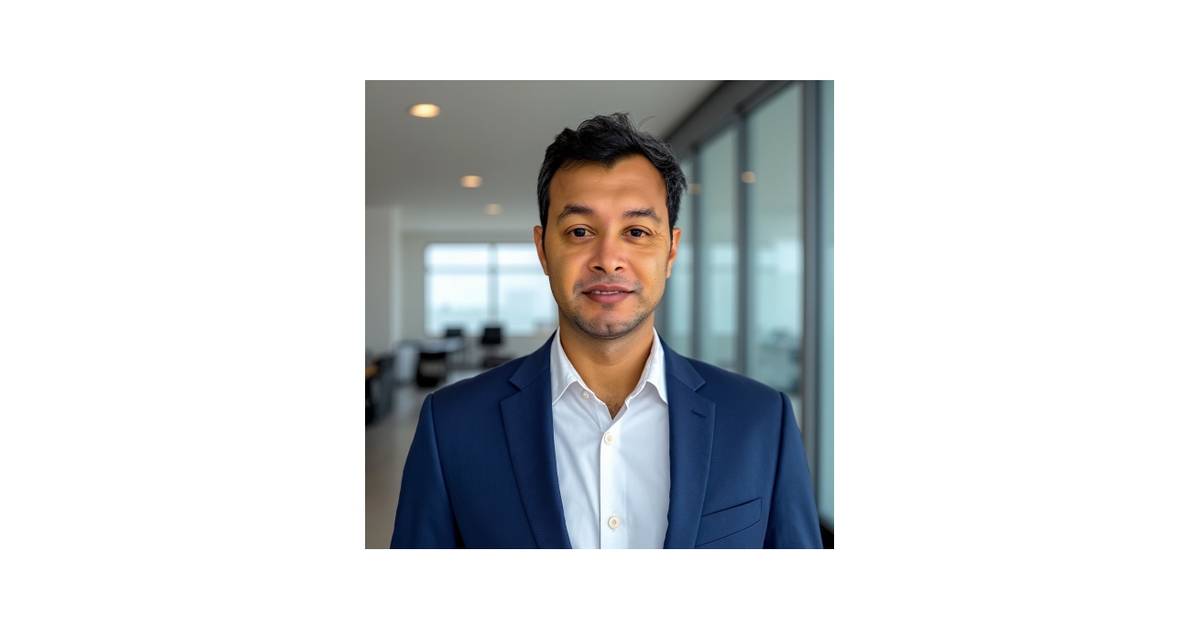This Precious Human Life
A grief psychologist explores how loss can orient us toward our capacity for connection—and how distress can motivate us to examine what really matters. The post This Precious Human Life first appeared on Tricycle: The Buddhist Review. The post...
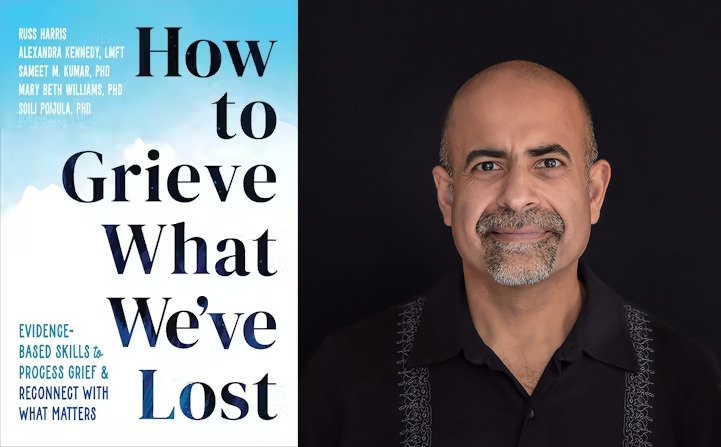
Over the course of our lives, we all experience losses. Yet our contemporary culture often doesn’t allow us the space we need to grieve. As clinical psychologist Sameet Kumar points out, bereavement leave in the workplace is often measured in days, not weeks or months, and there is often a societal pressure or expectation to “get over it.”
In his work as a grief counselor, Kumar draws from Buddhist approaches to impermanence and loss to guide patients and families through the nonlinear path of grief. His new book, How to Grieve What We’ve Lost: Evidence-Based Skills to Process Grief & Reconnect with What Matters, which he cowrote with four other therapists, distills some of these teachings and practices into an accessible guide for finding meaning and cultivating resilience in the face of loss.
In a recent episode of Life As It Is, Tricycle’s editor-in-chief, James Shaheen, and meditation teacher Sharon Salzberg sat down with Kumar to discuss how we can work with the embodied experience of grief, what feelings of powerlessness can teach us about equanimity, and how distress can motivate us to examine what really matters.
Sharon Salzberg (SS): You write about the importance of embracing the pain of grief rather than running from it. So could you tell us a bit about how to actually practice turning toward the difficult experiences of loss?
Sameet Kumar (SK): There are parallels here between grief and meditation practices. The word “mindfulness” is very popular, and the word itself connotes a mental process, mindfulness. I see the same parallel with grief and loss: People think of it as an emotional state of mental pain or anguish. But the more I practice meditation and the more acutely I’ve experienced grief, the more I’ve come to appreciate how physical these things are. Meditation is really about dialoguing with the body and opening a conversation with the body, with the sensations, impulses, posture, and physical pain and discomfort.
It’s very similar with grief. My most intimate experience of grief was in 2016, when my mother died very suddenly and unexpectedly. I had been working in palliative care and end-of-life care for many years, but nobody had taught me how physical grief was. My body felt like I fell out of bed every morning or got hit by a truck. It was purely physical, and at some point it was like connecting the dots and realizing that I had the same assumptions about meditation. I didn’t realize how much it was about physical practice. So it’s really bridging those concepts together and rooting them both in the experience of the body, experiencing pain, experiencing discomfort, holding pain, and holding discomfort.
SS: You also touch on how distress can motivate us to examine what really matters. Can you say more about this? How can grief clarify our values or priorities?
SK: My predominant work is in palliative care with people who are diagnosed with cancer. I’ve come to appreciate that catastrophic illness, like any trauma, is an amplifier of relationships, and grief is no different. It tends to bring out the nature, if there is such a thing, of many of our relationships: What matters the most? Who matters the most? What activities matter the most? In the shock of acute grief, I think most people find that they have to recalibrate their goals.
The way I think of it is that grief exposes a wound. It’s a relational wound that comes from being unable to connect with somebody or something that formed a core part of ourselves. And the healing of that wound is also in connection and in relational being, or interbeing, as Thay would say.
This recalibration of what matters most tends to prioritize that sense of warmth, love, and compassion: What are the kinds of things that get us to that state and help us to maintain that state? Yes, loss can change us, and it can change us in difficult ways, and it can change us in good ways too—in healthier ways.
SS: You write that loss can be a profound spiritual teacher, and listening to you I find myself thinking what an incredibly delicate position you are in as you work with people: You don’t want to diminish in any way that wound, and at the same you want to help open the door to the possibility of profound change that might be there. So how can we learn to recognize loss as a teacher?
SK: Well, first off, I think it’s not always possible to see loss as a teacher. Sometimes when there’s intense emotional pain, that’s all there is. I’m sure there’s a narrative that can be said that intense emotional pain is a profound teacher too. Yes, it is, but it also just really hurts, and when it’s around, there’s not a whole lot of dialoguing going on—it just hurts a lot. It might feel like you can’t breathe. So it’s not so much that there’s a teacher-student relationship with grief all the time. It’s more that when things are cooled off a little bit that the difficult periods of our lives and difficult relationships in our lives may have something to teach us.
I don’t know if things happen for a reason, but I trust our capacity to find meaning when bad things happen.
It’s hard to talk about this because so many of the people that I work with hear that things happen for a reason, and I don’t like that phrase at all. It can be tempting to stray into thinking, “Oh, well, you were meant to learn this lesson,” and I absolutely do not want to stray into that because there are some very bad things that people live through. It’s hard for me to say that something “had to happen” or was part of a plan. It just feels wrong.
There’s a distinction to be made between the idea that things happen for a reason and our capacity to find meaning in very bad things. I don’t know if things happen for a reason, but I trust our capacity to find meaning when bad things happen. Sometimes it’s a struggle, and sometimes the meaning of a very tough day is just that you got through a very tough day, and it’s exhausting, and your eyes are swollen and red, and you ate a bag of potato chips and a pint of ice cream, but you know what? You survived.
SS: That reminds me of a quote from Roshi Joan Halifax where she said something like, “Don’t try to force yourself to see the traumas of your life as gifts—they’re givens.” Sometimes we do see a blessing or a possibility in something really terrible, but it’s not because we’re forcing ourselves to. Relatedly, you write that to deny ourselves the ability to feel grief would be to erode the essence of our human capacity for deep, intimate love. So how can grief actually orient us—sometimes—toward this capacity for love?
SK: It’s like getting a tooth pulled, right? It can feel like that in the heart sometimes, that this relationship gets pulled out of our hearts, and it feels physically like we’ve had our hearts pulled out of our body. As difficult as that is, though, I do think that there’s an intensity behind grief that speaks to our capacity for connection, and it’s hard to put into words exactly—it’s magical, it’s sacred, it’s blessed, but I think that it’s also our natural birthright. That capacity for connection is pretty miraculous. The Buddhist teachings talk about this precious human life, about how rare it is to have attained a human birth, and I think part of what makes it so precious is our ability to experience interconnectedness. The nature of reality itself is in our ability to connect and be connected to, and loss highlights that in a very difficult way: how connected we were, say, to a parent, a spouse, a child, a friend, a family member, or even an idea.
James Shaheen (JS): You know, when I was going through a loss, I remember thinking very clearly to myself, “I can’t go on without this person. I don’t think I’m going to be able to bear it.” And, of course, I was able to bear it, and I was able to go on without that person. Following that, you can experience a sense of betrayal, like you’ve betrayed this person and their memory, because you are able to go on, and you do have a life ahead of you. How do you talk to people about this sense that you’ve betrayed this person or their memory?
We carry our relationships with those who are no longer here with us into this future world, and our joy becomes their joy through our capacity for connection.
SK: Part of my backstory is that my mother survived Partition, the partitioning of the South Asian continent. She witnessed her parents and her brother being killed during those tumultuous times, and it scarred her for life. She didn’t talk about those things very much—once a year we would talk about it during the anniversary of the train massacre that she survived. She carried a profound sense of survivor guilt, and the conclusion that she came to later in her life was similar to what I’ve heard articulated from a lot of people who survived concentration camps in World War II: Rather than betraying their loved ones by living, their loved ones live on through them. And that’s what we do—we carry our relationships with those who are no longer here with us into this future world, and our joy becomes their joy through our capacity for connection.
My mother would hold my children, and I would think to myself, “Wow, it’s like her mom is here with her.” She would sometimes say, “I wish she were here to see this.” Later in her life, she came to a place that I’ve heard so many people who survived concentration camps come to. Some of these people that I’ve spoken to who survived concentration camps had the greatest sense of humor I’ve ever come across, and it just blew my mind. One of them very distinctly told me, “I have to laugh for the thousand people who didn’t make it out. I have to laugh for all of them every day.” He told me this while he was getting chemotherapy. That gives you a sense of our capacity to carry immense pain but also immense meaning.
This excerpt has been edited for length and clarity.

 Kass
Kass 








